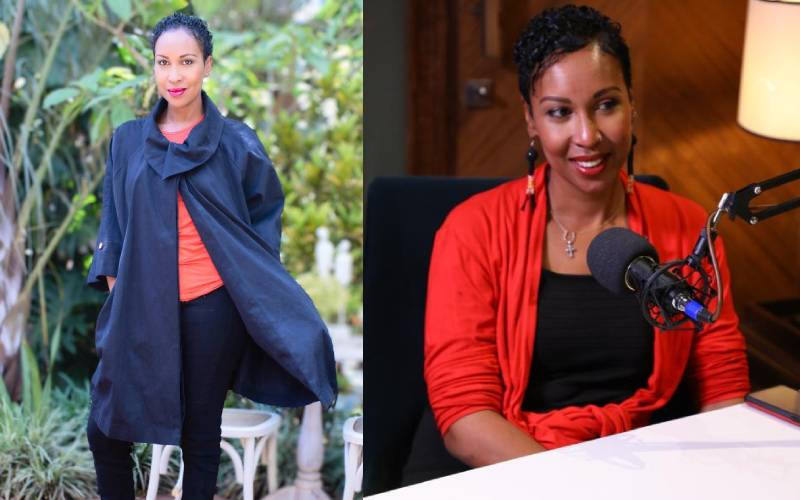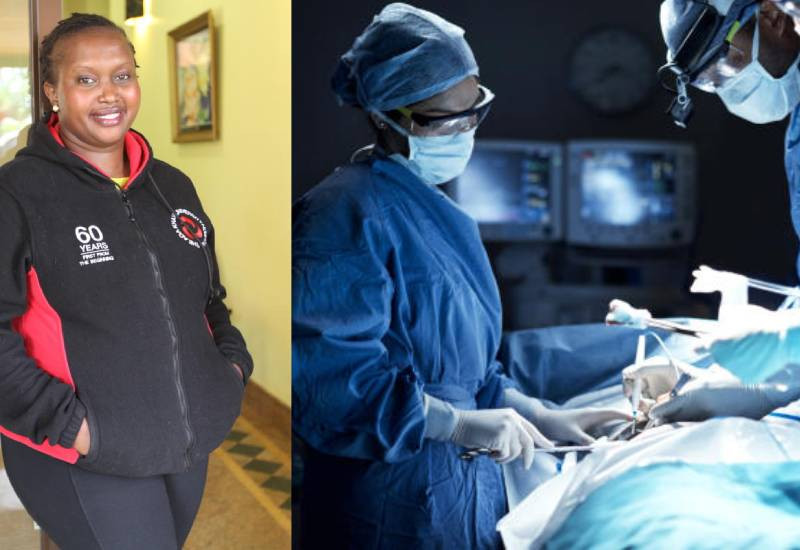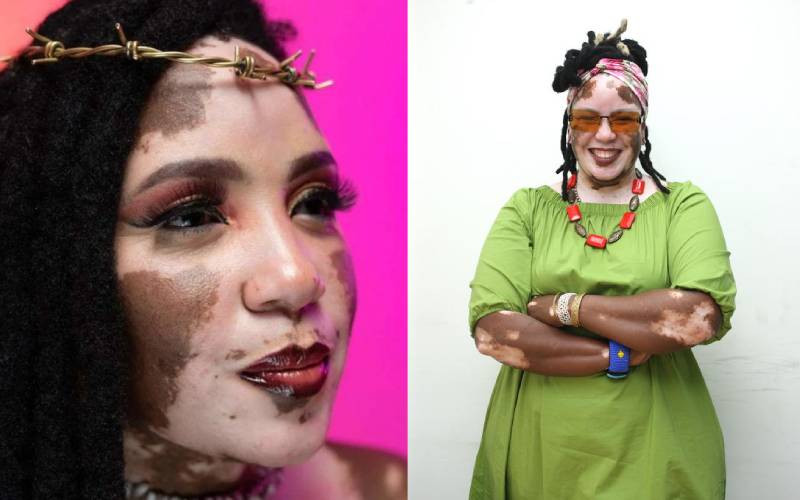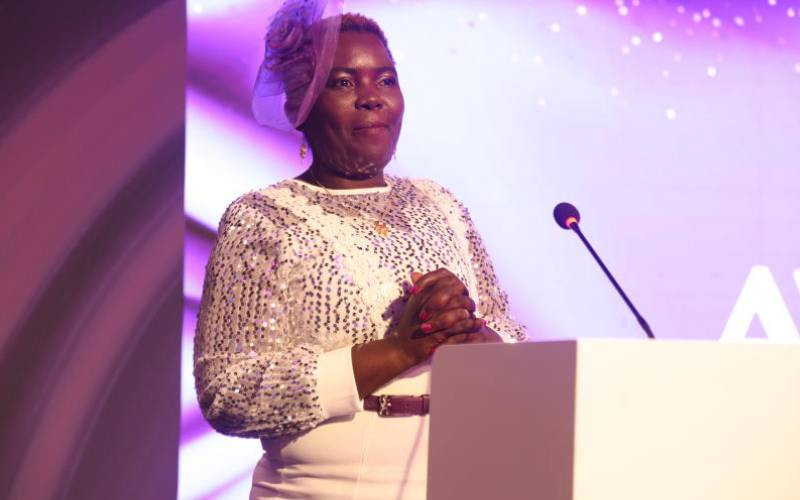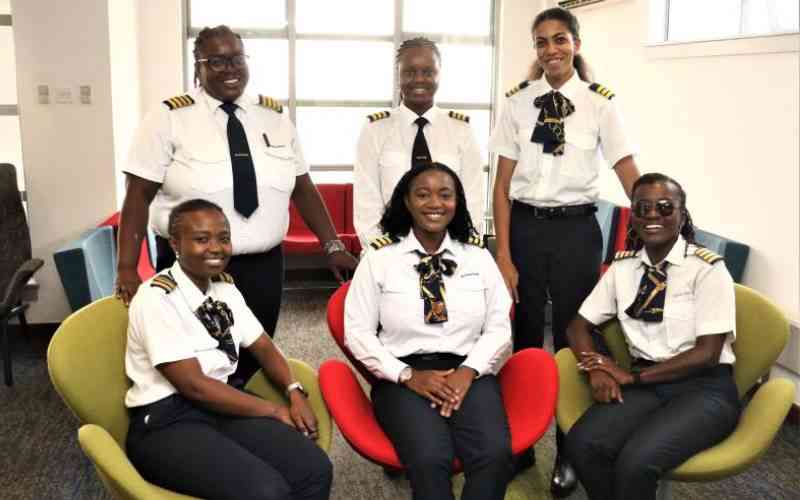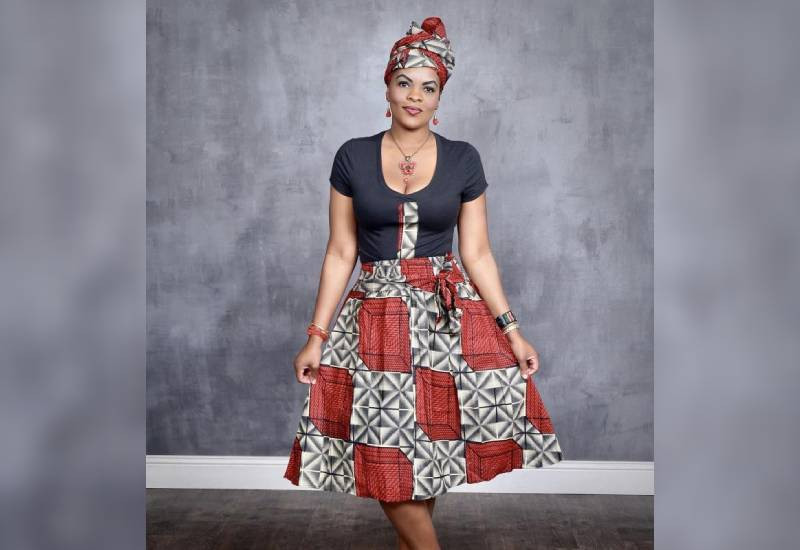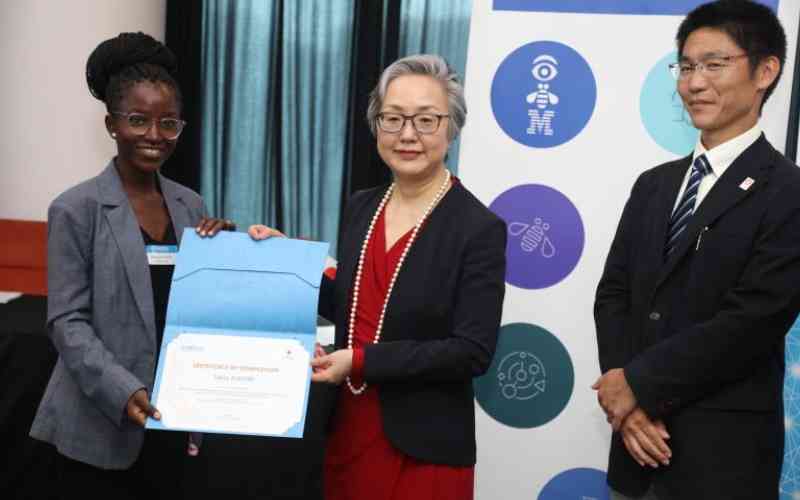
How I became a modern day slave
Modern day slavery is a reality for many Kenyans as Wangeci Kanyeki learned; and the victims may not even know they are caught up in the web of bondage. We follow the stories of three women.
The long struggle to campaign for the abolition of slave trade in the 18th Century may look like a forgotten era, but the slavery course is rearing its ugly head again in what is known as modern day slavery.
In the African culture known for fostering children and helping relatives, the practice may happen right under our noses before we identify it as slavery.
Vulnerable innocent victims, often from the poorest circles of the society are exploited as they are promised a better life, education or employment.
Twenty-seven-year-old Prisca* is one such victim. In 2014, she travelled to Libya to work, seeking greener pastures. But upon arrival, her employer took her passport. She was employed as a domestic worker whereas she had been promised a different job when she was in Nairobi.
Ironically, she had left a domestic job in Saudi Arabia only two years before. “I worked for an elderly Arabian couple. I would work from 6am to midnight every day. My employer would shout at me and abuse me as I did my chores. So I came back to Nairobi to try and get a different job other than housekeeping. I was desperate since I take care of my mum and two siblings.
A Facebook friend directed a friend and I to an agency, which was to link us with jobs in Libya. We had to do a medical test that cost us Sh10,000. Our papers were processed quickly and we were told we would work together,” Prisca says.
“After collecting our passports, we spent the first night at the Libyan agent’s house. I thought the office and the agent looked fake. Employers would come and look at us and say whether they wanted us.
I did not get the job of care-giving at a nursing home as had been promised in Nairobi, neither were we posted to work together with my friend. I would be paid USD200 (Sh20,000) to work as a house keeper rather than the USD250 (Sh25,000) salary as caregiver,” she narrates.
“My passport was given to my new employers who were a 55-year-old man with a 46-year-old wife. They had four kids and lived in a 24-roomed house including the bathrooms. The work was too much and the employer said I was refusing to work. He would, therefore, not pay me. The Libya agent came to get me and I left without money and without a passport,” she says.
“I was taken to a shell of construction house, which had no doors and no windows. There I found 15 men there of mixed nationalities. I was instructed not to talk to them. A 75-year-old Ethiopian man nicknamed Babu, gave me his phone; I called my family. I told them ‘please pray for me, I am in a bad situation.’”
Second Job
“My agent got me another job with a smaller family. I was never asked my name, I was to cover my hair and wear loose clothes. I was to learn and speak Arabic. My salary was to be $200 (Sh20,000) and I worked from 6.30am to 3.00am. The husband was always angry with me and required me to speak in Arabic and become a Muslim. I was not to have a phone but had to use their phone.”
“The civil war in Libya worsened and we had to move to the wife’s mother’s place for safety. I had to do her mom’s work of carrying heavy things. I wanted to leave the job, so I called my agent as I still did not have a passport but the agent had travelled so I continued working there,” Prisca narrates.
“When we returned to my employer’s home, the house had been ransacked, my possessions in my suitcase were scattered, the little money I had was taken. I had not been paid and at one time when I started my periods, I had to ask the wife of my employer to buy me pads. She brought me panty liners, which were too thin. Eventually, she gave me only four pads to use for the week of my periods,” she says.
“My agent finally sent a friend of to pick me up from that house. I was taken to an empty house to wait for my agent. At night, three men came. They were drunk and smoking. There was a power blackout so the house was in pitch darkness.

One of the men asked if I was married as he wanted to have sex with me but I refused. I cried for mercy and told him it was ‘haram’. They raped me while I pleaded, one after the other. I wanted to jump from the third floor but realised I was going to die.”
“The agent sent his assistant to inform me that I could not fly to Nairobi because there were no airlines coming to Libya due to the war. The agent also said I needed to pay him $3,000 if I wanted to come back to Kenya. I was taken to a slum and left alone in a deserted room with a bed and wardrobe for eight days.
I only had bread to eat. From where I was, I could hear gun shots and the movement of the gunman. My agent got me another job and I received USD200 (Sh16,000) from my previous employer. However, I still did not have my passport.”
Breaking free
“My third employer promised to pay me USD200 but would commence payment after the third month. I was overworked and required to work from 6am to 12noon without resting. At least they bought me a phone and I joined a WhatsApp group through which an organization was helping trafficked people go to the Kenyan Embassy in Libya.
I got my chance. I packed my suitcase and escaped by jumping over the wall. I got a taxi and was taken to the Kenyan embassy where our papers were processed with the help of the International Organization of Migration. I came back to Nairobi in December last year.
The statistics
Such incidents happen around us all the time where a person is taken to a different location with false promises of a better life only to be exploited and taken advantage of. The practice of human trafficking is a modern form of slavery involving the illegal trade of people for the purpose of exploitation.
Walkfree Foundation an anti-slavery movement founded in 2010, estimates that over 35 million people globally live in modern day slavery. Exact statistics related to human trafficking are difficult to find as it is a clandestine crime where few victims and survivors come forward for fear of shame, retaliation or a lack of understanding.
Ruth Njaungiri, the founder of a rescue centre, trains domestic workers and finds them employment. Ruth says that each month, she handles at least five cases of domestic workers being mistreated.
Common cases include long working hours and sexual harassment of girls by the men and husband in a home. Some girls are made to sleep with animals or in a room with rain leaks or a servant quarter without doors.
“We do not want our domestic workers to be treated like slaves, we instruct the girls to call the rescue centre if they are mistreated or come to the centre for help. There are cases we have had to report to police who sometimes take too long to deal with the cases,” says Njaungiri.
Many under-age children as young as 13 years, are also brought to the city by their aunties or relatives with the promise that they will be taken to school only to end up as house girls. Some are mistreated and end up with scars on their bodies from brutality.
Serah’s story
When Serah* was 13 years old, her dad lost his job and could not take her to school. He sold off household stuff and gave the money to an uncle living in Kisumu to take Serah to school. Separated from her family, Serah settled in with her uncle’s family with the hope of going to school. However, when the other children went to school, Serah was left at home to do the house chores.
“I was only given supper. I never got breakfast. My aunty who was a step-mother to my cousins would lock food and Vaseline away. She always shouted at me if I touched anything. I was not allowed out of the house and was made to sleep under the stairs and eventually got sexually abused by a visiting relative.”
Radoslaw Malinowski, Founder of HAART, an NGO that creates awareness against human trafficking says, “International organisations estimate that 75 per cent of human trafficking victims are women and children who end up being used as sexual slaves, forced labourers or forced organ donors who may not even be aware that they are victims.”
According to the US Trafficking in Person’s report 2014, Kenya was ranked in the second tier watch list which has been the concurrent trend for three years.
Mariana Kipsy, a project officer at the International Organisation of Migration says human trafficking within Kenya as a transit and destination country has two major routes. The North-eastern route is from Somalia, Mandera, Garissa, Moyale to Nairobi, Mombasa and beyond.
The Western route is through Busia and Malaba border with evidence of human trafficking by Ugandans. A trend of migration and trafficking from Kenya to the Middle East has also been noted, where Kenyans are at risk of exploitation in domestic servitude, massage parlours or brothels, or being forced into manual labour.
Stella’s story
Stella*, a 29-year-old Kenyan who worked in Libya was promised a job as caregiver to an old couple, but she got employed as a domestic worker despite her diploma training in early childhood education. She worked long hours and only slept for one hour a day during the Ramadhan month.
“The children in the home would insult me and call me Nyabenda, which means slave or black woman,” says Stella.
According to Walk Free Foundation, senior campaigner, Sonia Kwami, bonded labour is where the victim has to work to cover costs of money owed, which is a characteristic of slavery.
Victims are recruited into some agency, transported to a different location and given false promises while they are deceptively gotten into forced labour or prostitution under an abusive and/or strictly controlled environment.
In some instances, the victim’s documentation such as passports or identity card are retained by the agency. Victim’s work for undefined hours for up to 18-20 hours and their movements are restricted.
Often, the person cannot call their family and sometimes they cannot receive calls. Victims work for free or for very little compensation with the threat that “I paid for your transport, upkeep, shelter and food.”
Forms of slavery
Though there is not much factual evidence on organ trade in East Africa, there are claims that Tanzania has demand for Albino body parts for cultural practices and witchcraft. This is currently under investigation. Other forms of trafficking include early marriages, forced adoptions and forced criminal activities such as terrorism.
Children’s attempt to report the cases is often ignored. They are asked to obey the respective authority person they are under yet there are many who never say anything. Traffickers are often people we know, they can even be family members who take advantage of the trust of the victims.
Margaret Muthanje from Trace Kenya in Mombasa says human trafficking has become rampant in the coastal region and mainly targets children, youth and persons with disabilities.
From a legal perspective, Ruth Juliet Gachanja, Executive Director at The Cradle says, “Kenya has made gains on human trafficking by passing the Counter Trafficking Persons Act of 2010, which came into effect in 2012, especially on protection of victims of human trafficking.”
*Real names have been withheld to protect the victims from stigma.
 The Standard Group Plc is a multi-media organization with investments in media platforms spanning newspaper print
operations, television, radio broadcasting, digital and online services. The Standard Group is recognized as a
leading multi-media house in Kenya with a key influence in matters of national and international interest.
The Standard Group Plc is a multi-media organization with investments in media platforms spanning newspaper print
operations, television, radio broadcasting, digital and online services. The Standard Group is recognized as a
leading multi-media house in Kenya with a key influence in matters of national and international interest.

